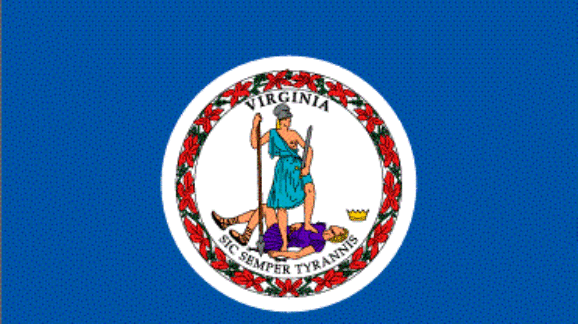Virginia Legislature Restricts Privately-Funded State Legal Staff

 As revealed in detail in “Law Enforcement for Rent: How Special Interests Fund Climate Policy through State Attorneys General,” former New York City mayor Michael Bloomberg established a “State Impact Center” at New York University Law School with the goal of privately financing state attorneys general to investigate and litigate on issues surrounding climate change.
As revealed in detail in “Law Enforcement for Rent: How Special Interests Fund Climate Policy through State Attorneys General,” former New York City mayor Michael Bloomberg established a “State Impact Center” at New York University Law School with the goal of privately financing state attorneys general to investigate and litigate on issues surrounding climate change.
Specifically, Bloomberg’s group recruited state attorneys general willing to use his resources to “advanc[e] progressive clean energy, climate change, and environmental legal positions.” To accomplish this goal, the State Impact Center set out to hire and place “Special Assistant Attorneys General” (SAAGs), with the statutory authority of attorneys general, to promote policies of interest to Bloomberg—namely, advancing the agenda of climate change alarmists.
The scheme works like this: the State Impact Center at NYU hires “research fellows” with backgrounds in climate litigation, selected by attorney general offices and at salaries set by attorney general offices, and then places those fellows in participating attorney general offices—to date, all liberal Democrats—as Special Assistant Attorneys General. In exchange for this help, participating attorney general offices assured Bloomberg’s group that the SAAGs will work on issues related to climate change and renewable energy, that the work would not get done without the privately-funded SAAGs, and that they would report back to the State Impact Center on their work advancing the climate agenda.
Incredibly, in applying for these privately funded attorneys—and public relations services promoting his own activism—Virginia Attorney General Mark Herring offered to use his office “to advance the agenda represented by [the Center].”
Thankfully, in a mid-day vote on Sunday adopting the Commonwealth’s budget, the Virginia legislature restricted monies appropriated to the Office of Attorney General, precluding the arrangement Bloomberg’s Center has used to place as many as 14 SAAGs in 10 states and the District of Columbia so far.
Under Virginia’s Freedom of Information law, CEI has requested copies of deliberations supporting the Virginia Office of Attorney General’s claim that Virginia law permits this unprecedented arrangement—which, on its face, it clearly does not. When the office implausibly responded to the request claiming it had created no such analyses supporting this assertion, CEI and I sued to get to the bottom of this conflict. As we argued in court in a late January hearing, Virginia’s Office of Attorney General had also previously provided us with a false, “no-records” response to another request. So accepting a reply of “trust us” in such an extraordinary situation is simply not an option.
That this vote by the General Assembly was even necessary is itself incredible, given that not one, but four provisions of the Virginia Code already prohibit this unprecedented arrangement—as we are arguing in ongoing litigation against Herring’s office.
The Virginia Office of Attorney General insists to the court, as it has for weeks to media outlets, that it never actually participated in the Bloomberg-financed SAAG scheme. This claim not only makes no sense in our case, but indicates that the office can’t get its story straight.
After making the extraordinary offer to use the office “to advance the agenda represented by” Bloomberg’s group, Attorney General Herring even publicly claimed “I’m glad Virginia is participating in its fellowship program.”
Sunday’s vote is a statement from Virginia’s elected representatives that Bloomberg’s money can’t buy a donor’s way into Virginia law enforcement. We applaud this vote while wondering, what’s wrong with the rest of these legislatures?